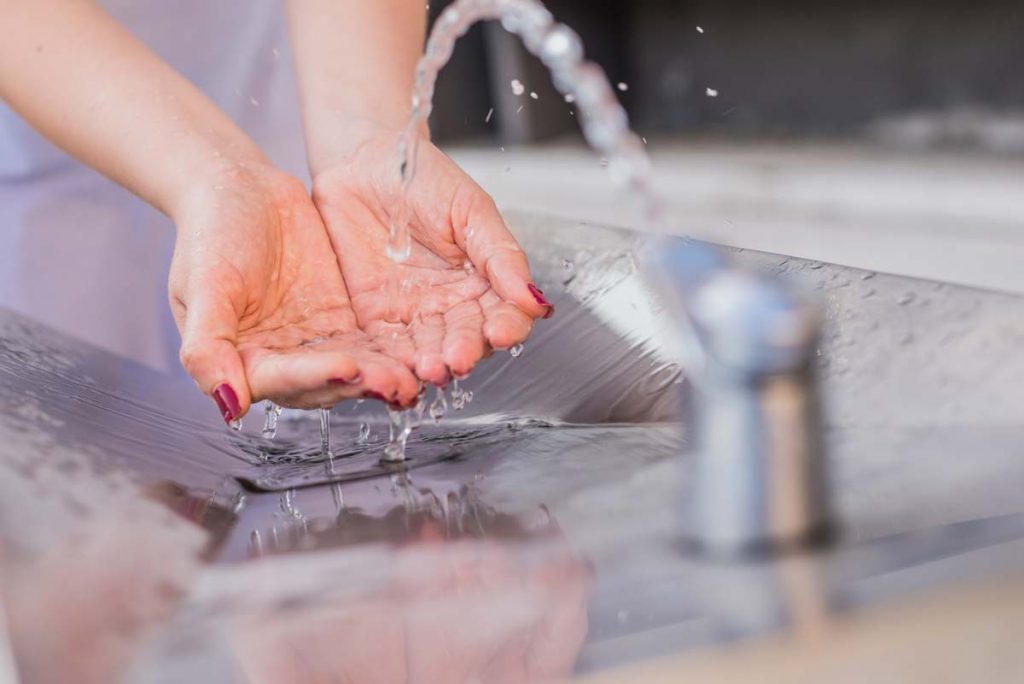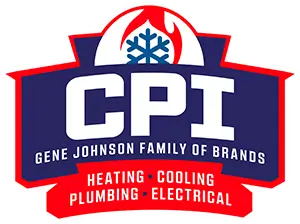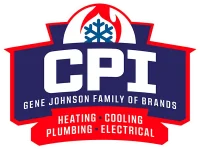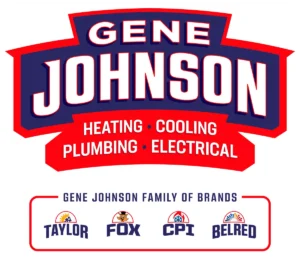What are the Most Common Water Softener Problems?
Water softeners play a vital role in many households, ensuring that the water running through our pipes is free from excessive minerals that can harm appliances and affect water quality. Nevertheless, like any other household device, these systems can encounter a variety of challenges.
Here, we will delve into the prevalent issues experienced by individuals who own water softeners. From the relatively minor inconvenience of incorrect salt levels to the more serious concerns like motor failures and significant changes in water quality, understanding these issues is key to maintaining a smoothly functioning system. We’ll provide a clear overview of each problem, helping you to identify, understand, and address these challenges effectively.

Common Water Softener Problems
Let us now unpack the myriad of issues that can beset water softeners. From mechanical hiccups to chemical imbalances, these problems can subtly creep in, affecting your system’s performance. Understanding them is key to early detection and swift resolution, ensuring your softener continues to function optimally.
Incorrect Salt Levels
The salt in your water softener isn’t just for taste – it’s a critical component for the ion exchange process that softens your water. When the salt level is off the mark, it disrupts this process. Too little salt and the system can’t effectively remove hardness minerals; too much, and you risk clogging and other inefficiencies. It’s a balancing act that requires regular monitoring. Ensuring the right salt level is akin to hitting the sweet spot that keeps your water consistently soft and your system running smoothly.
Salt Bridges
A salt bridge in your water softener is like an invisible barrier that hampers its efficiency. This hard crust forms above the water level in the brine tank, often a result of using the wrong kind of salt or high humidity conditions. It creates a false floor, preventing the salt from properly mixing with the water below. This means the regeneration process can’t occur effectively, leaving your water harder than desired. Breaking up a salt bridge is essential for restoring the full function of your water softener.
Poor Water Flow
Encountering a reduced water flow in your softener system can feel like a trickle of frustration. This issue often points to a clog or obstruction within the system – from the filters to the resin bed. It’s akin to a traffic jam in your pipes, where water struggles to pass through the congested pathways. Regular maintenance and cleaning can prevent such bottlenecks, ensuring that your water softener maintains its flow efficiency, providing uninterrupted service for your household needs.
Excessive Salt Usage
When your water softener starts consuming salt like it’s going out of style, it’s not just an attack on your wallet; it’s a symptom of an underlying inefficiency. Excessive salt usage can occur due to incorrect system settings, issues with the regeneration cycle, or even an incorrect assessment of your water’s hardness. It’s important to calibrate your system accurately and check for any functional anomalies. Addressing this issue not only helps in conserving salt but also ensures your softener operates in an eco-friendly and cost-effective manner.
Insufficient Softening
When your water feels harder than usual, despite having a water softener, you’re facing insufficient softening. This issue often arises when the softener fails to remove enough calcium and magnesium ions from the water. Causes range from depleted resin beads to incorrect system settings. It’s like having a guard asleep at the post, allowing hardness minerals to slip through unchecked. Regular system checks and timely resin replacement are key to ensuring your water regains its desired softness.
Blockages
Blockages in a water softener are akin to clogs in the arteries of your home’s water system. They can occur in various places – from the filter screens to the brine line – and are often caused by sediment buildup or salt mushing. These blockages impede the flow and function of the softener, much like a dam in a river. Preventing these requires a vigilant eye on maintenance, ensuring that all pathways within the softener remain clear for optimal operation.
Issues with Regeneration
Regeneration is the reset button for your water softener, refreshing its ability to soften water. When this process falters, it’s often due to improper settings or malfunctions in the control valves. It’s like a rejuvenation ritual gone wrong, where the softener fails to adequately cleanse itself of the accumulated minerals. Ensuring that the regeneration cycle is correctly set and functions as intended is crucial for continuous, effective water softening.
Control System Issues
The control system of a water softener is its brain, orchestrating the entire softening process. When such a system experiences problems, it has the potential to disrupt the entire operation. This could be due to outdated software, electrical problems, or incorrect programming. It’s akin to having a conductor who’s out of sync with the orchestra, leading to a performance that’s off-key. Regular updates, checks, and professional servicing can keep this central command running smoothly, ensuring that your water softening process remains harmonious and efficient.
Smelly or Discolored Water
Encountering water that has an off-putting smell or a tinted hue is a telltale sign of underlying issues in your water softener. Often, this is indicative of bacterial growth or iron and manganese contaminations in the system. It’s like having unwelcome guests in your water supply, altering its purity and aesthetics. Addressing these concerns often requires a thorough cleaning of the system and, in some cases, additional filtration solutions to restore the water’s clarity and odorlessness.
Resin Bead Problems
Resin beads are the unsung heroes in your water softener, tirelessly exchanging hard minerals with softer ones. When these beads begin to break down or become coated with iron or other metals, their effectiveness dwindles. It’s similar to a filter losing its porosity, becoming less capable of sieving out the undesirables. Regularly checking the integrity of these beads and addressing any contamination issues is crucial to maintaining the softener’s ability to deliver soft water consistently.
Leaks
Leaks in a water softener can be both subtle and detrimental, often going unnoticed until they cause significant issues. These issues may arise from deteriorated seals, loose connections, or fractures in the tank. Much like a slow drip erodes a stone, even minor leaks can lead to larger problems over time, including water damage and system inefficiency. Regular inspections for any signs of moisture or water damage can help catch these leaks early, preventing more extensive repairs down the line.
Motor Failures
The motor in a water softener is the driving force behind its operation, powering the regeneration cycles and water flow. When the motor fails, it’s akin to the heart of the system skipping a beat, leading to a complete halt in water softening. Causes can range from electrical issues to wear and tear from continuous use. Prompt attention to any unusual noises or a sudden stop in the system’s operation can prevent long-term downtime and costly replacements.
Water Quality Changes
Changes in the quality of your water, such as increased hardness, odd tastes, or cloudiness, can signal shifts in the water supply or inefficiencies in the softener. These variations can be due to external factors like changes in municipal water treatment or internal system issues. Adapting to these changes often requires recalibration of the softener settings or additional water treatment methods. Regular testing of water quality is essential to ensure that your softener adapts effectively to any shifts in water composition.
What To Do if You Experience Water Softener Problems?
Experiencing problems with your water softener can be daunting, but there are steps you can take to diagnose and potentially resolve some issues before calling in the professionals.
- Check Salt Levels and Bridges: Regularly inspect your brine tank for the correct salt level and the presence of salt bridges. Gently breaking up any bridges and maintaining the right salt level can be an easy fix. Check for any indications of leaks or obstructions during your inspection. Tightening connections and cleaning filters can sometimes resolve minor issues.
- Monitor Water Quality: Changes in water quality like hardness or discoloration can often be initial indicators of a problem. Regular testing can help you catch issues early.
- Reset and Recalibrate: Sometimes, simply resetting your water softener or recalibrating it according to the manufacturer’s instructions can resolve certain issues.
For most problems, especially those involving internal components like resin beads, control systems, or motors, professional assistance is highly recommended.
This is where CPI Plumbing and Heating comes into play. CPI Plumbing and Heating provides a wide range of water softener services, backed by a team of skilled technicians. They don’t just fix the problem at hand; they conduct a thorough examination to ensure your system runs efficiently for years to come.
Whether it’s routine maintenance, complex repairs, or system upgrades, CPI Plumbing and Heating has the expertise to handle all types of water softener services. Relying on experts such as them not only spares you from inconvenience but also guarantees that your water softening system is in capable hands.
Remember, when it comes to water softener problems, professional expertise is invaluable. For reliable, high-quality service and peace of mind, consider reaching out to CPI Plumbing and Heating at (360) 822-9306 for your water softener needs.
Frequently Asked Questions (FAQ)
Are there any potential issues caused by using a water softener?
Using a water softener can occasionally lead to specific issues, primarily due to the ion exchange process it employs. One common concern is an increase in sodium levels in the water, which might be significant for those on a low-sodium diet. Additionally, softened water can sometimes lead to faster corrosion of metal pipes and fixtures, particularly if they are made of copper or brass. Over time, the excess sodium can also affect soil and plant health in areas where softened water is used for irrigation. However, with proper maintenance and usage, these issues can be effectively managed.
What is the typical lifespan of a water softener system?
The life expectancy of a water softener system usually spans from 10 to 15 years, contingent on several factors. This timespan is impacted by the unit’s overall quality, the hardness of the incoming water, and the level of maintenance it receives. Engaging in routine upkeep, such as the thorough cleaning of the brine tank and timely replacement of resin beads, can notably prolong the lifespan of a water softener. Additionally, using the right type and amount of salt, and ensuring proper settings for regeneration cycles, play a crucial role in preserving the system’s efficiency and longevity.
How can I tell if my water softener is malfunctioning or deteriorating?
Signs of a malfunctioning or deteriorating water softener include changes in water quality, such as a return of water hardness with symptoms like scale buildup, spots on dishes, or reduced soap lather. You might also notice an increase in salt usage without a corresponding improvement in water softness. Strange noises during regeneration cycles, water leaks around the unit, or a noticeable change in water pressure can also be indicators. Regularly testing your water’s hardness levels can provide an early warning, allowing you to address any issues before they become significant problems.
What could lead to a water softener ceasing to function?
A water softener may cease functioning due to various reasons. Mechanical failures, such as issues with the control valve or motor, can halt operations. Salt bridges or the formation of salt mush within the brine tank have the potential to impede the proper regeneration process. Resin beads losing their effectiveness over time, or becoming coated with iron or other minerals, also contribute to the system’s failure. Electrical problems, incorrect settings, or a disrupted power supply can also cause the unit to stop working. Regular inspections and proactive maintenance play a pivotal role in detecting and resolving these problems early on, contributing to the durability and effective operation of your water softener.
Is it normal for water softeners to operate nightly?
Water softeners operating nightly is not unusual, especially in households with high water usage or very hard water. The frequency of regeneration cycles depends on the hardness of the incoming water, the capacity of the softener, and the household’s water consumption. Some modern softeners are designed to regenerate based on demand, which may lead to nightly cycles if the conditions necessitate it. However, if your softener is regenerating more frequently than expected, it may be worth checking settings, salt levels, and the resin bed to ensure everything is functioning correctly.
What’s the recommended frequency for cleaning a water softener?
The suggested cleaning frequency for a water softener primarily relies on the water’s quality that it treats and the volume of water consumption in your household. Generally, it’s advisable to clean the brine tank annually to prevent salt bridges and salt mushing. The resin bed should also be cleaned periodically, typically once a year, using a specialized resin cleaner to remove iron or other mineral deposits. In areas with very hard water or high iron content, more frequent cleaning may be necessary. Routine upkeep guarantees the system’s efficient operation and prolongs its lifespan.
Can the use of a water softener have any health implications?
Using a water softener can have minor health implications, primarily due to the increased sodium content in softened water. This might be a concern for individuals on a sodium-restricted diet. Nonetheless, the quantity of sodium introduced is quite minimal when compared to your overall dietary sodium intake. Additionally, for people with certain skin conditions, softened water can sometimes exacerbate symptoms due to its effect on the skin’s natural oils. It’s also important to note that while softened water is ideal for household use, it might not be the best choice for watering plants due to its sodium content.
Is there a risk of a water softener harming my laundry appliances?
A water softener is unlikely to harm laundry appliances; in fact, it generally has the opposite effect. Softened water can enhance the efficiency of washing machines by preventing scale buildup, which can damage the appliance over time. It also allows for better detergent dissolution, leading to cleaner laundry with less detergent use. However, if the water softener is not functioning correctly and releases excess salt, it could potentially lead to corrosion or damage. Regular maintenance of the water softener ensures it works effectively, contributing positively to the longevity and performance of your laundry appliances.
Is it possible for bacteria to develop within a water softener system?
While it’s not common, bacteria can develop in a water softener system, particularly in the brine tank. This usually occurs if the tank is not cleaned regularly or if the water supply itself is contaminated. Bacteria growth can lead to unpleasant odors and can potentially impact the effectiveness of the softening process. Regular cleaning and sanitization of the water softener, especially the brine tank, are essential to prevent bacterial growth. It’s also important to ensure a good supply of water to the system and to address any issues with water quality at the source.
Does the type of salt used in a softener affect its efficiency?
Yes, the type of salt used in a water softener can significantly affect its efficiency. There are primarily three types of salt available for use in softeners: rock salt, solar salt, and evaporated salt. Rock salt is less expensive but contains more insoluble impurities, which can reduce efficiency and increase maintenance needs. Solar salt, more soluble than rock salt, is a better choice and is more efficient in regeneration. Evaporated salt, the purest form, offers the highest solubility and is the most efficient but also the most expensive. Choosing the right type of salt can optimize your softener’s performance and reduce maintenance issues.
Can hard water bypass affect the performance of a water softener?
Indeed, a hard water bypass can impact the effectiveness of a water softener. If the bypass valve is accidentally left open, hard water will flow directly into the plumbing system without being softened. This bypass can result in the accumulation of scale in pipes and appliances, diminishing their efficiency and longevity. It can also result in the issues associated with hard water, such as soap scum and dry skin, reappearing. Regular checks to ensure that the bypass valve is properly closed and functioning can help maintain the optimal performance of the water softener.
How does a water softener impact household plumbing over time?
Over time, a water softener can have a positive impact on household plumbing. By eliminating minerals such as calcium and magnesium responsible for water hardness, it effectively prevents the formation of scale within plumbing and appliances. This proactive scale prevention contributes to the preservation of optimal water flow and heat transfer, ultimately elongating the operational life of essential household equipment such as water heaters, dishwashers, and washing machines. Moreover, the use of soft water significantly reduces the occurrence of soap scum and mineral deposits, ensuring that fixtures remain cleaner and less prone to unsightly buildup. Overall, a water softener contributes to the longevity and better performance of household plumbing systems.
Maintaining Your Water Softener with CPI Plumbing & Heating
As we conclude our journey through the common issues and solutions for water softeners, it’s evident that proactive maintenance and expert intervention are crucial. Navigating these challenges might seem complex, but with the right expertise, it becomes a smooth process. This is where CPI Plumbing & Heating excels.
Our team of seasoned professionals is dedicated to ensuring that your water softener operates at its best, contributing positively to your home’s water quality. At CPI Plumbing & Heating, we combine our in-depth knowledge of water systems with a commitment to outstanding customer service.
Whether you need help diagnosing a problem, routine maintenance, or a complete system upgrade, our experts are ready to assist. We are dedicated to providing customized solutions that cater to your unique requirements. Allow us to assist you in attaining the ideal equilibrium for your household’s water system.
For expert water softener services and more, reach out to CPI Plumbing & Heating at (360) 822-9306 – Your ally in ensuring home comfort and efficiency.


